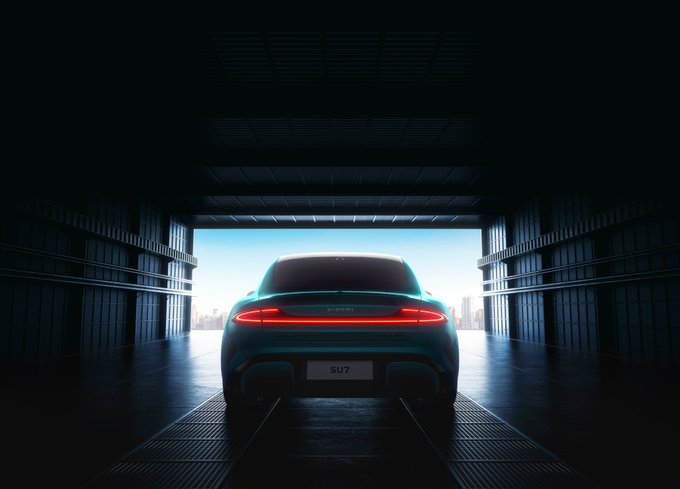Chinese smartphone maker Xiaomi is poised to unveil its inaugural electric vehicle (EV) and commence order placements on Thursday.
This week, Xiaomi’s chief executive, Lei Jun, announced that the Speed Ultra 7 (SU7) would be priced below 500,000 yuan ($69,186; £54,836).
This move positions the technology giant to compete directly with rivals such as Tesla and BYD in the electric vehicle market. Xiaomi’s foray into this sector comes amid a global slowdown in sales growth, prompting a price competition.
Xiaomi aims to leverage its existing customer base by offering the SU7, which shares an operating system with its phones, laptops, and other devices.
With a market share of approximately 12%, Xiaomi is the third-largest seller of smartphones globally, according to research firm Counterpoint.
The SU7, teased by Xiaomi since last year, has drawn comparisons to Porsche’s Taycan and Panamera sports car models. Production will be handled by a unit of the state-owned car manufacturer BAIC Group at a Beijing plant capable of producing up to 200,000 vehicles annually.
“While getting this far is itself quite an achievement, the ultimate achievement would be to demonstrate that there is a consumer market for Xiaomi as a smart EVs brand,” Bill Russo of Automobility told the BBC.
Reflecting the hurdles that technology companies encounter when venturing into electric vehicle manufacturing, Apple, the maker of iPhones, purportedly scrapped its plans to develop an EV last month.
Mr. Russo further noted that Xiaomi’s decision to enter the automotive market underscores its confidence in the brand’s relevance in China, contrasting with Apple’s perception that the EV market lacked sufficient potential beyond China.
Xiaomi has announced its intention to invest $10 billion (£7.9 billion) in its vehicle division over the coming decade.
“The Chinese EV market is very mature and creates a very stable ecosystem for the EV manufacturers,” said Abhishek Murali from research firm Rystad Energy.
“For example, the battery supply chain is very strong, and the charging network in the country is also growing to meet the growing EV feed.”
Tesla, led by the billionaire Elon Musk, has recently reduced the prices of its cars in China by substantial amounts, responding to price cuts by local competitors like the top-selling EV maker, BYD.
China, being the largest automobile market globally, is already densely populated with contenders. Xiaomi stands out as one of the few new players to secure approval from regulatory authorities, amidst efforts to manage the influx of new market entrants.
While BYD reported record annual profits earlier this week, it acknowledged a slowdown in growth towards the end of last year. Similarly, Nio, headquartered in Shanghai, revised down its first-quarter delivery forecast due to consumer spending constraints amid China’s economic deceleration.
Tesla, the American EV behemoth, is poised to unveil its delivery figures for the first quarter of 2024 next week.
Simultaneously, governments worldwide are pushing back against imports of foreign-made EVs. Beijing initiated dispute resolution procedures against the US at the World Trade Organization on Tuesday, challenging “discriminatory subsidies” under the US Inflation Reduction Act. Additionally, the European Union has launched an inquiry into whether Chinese government subsidies facilitated the undercutting of European-made electric car models by Chinese counterparts.

